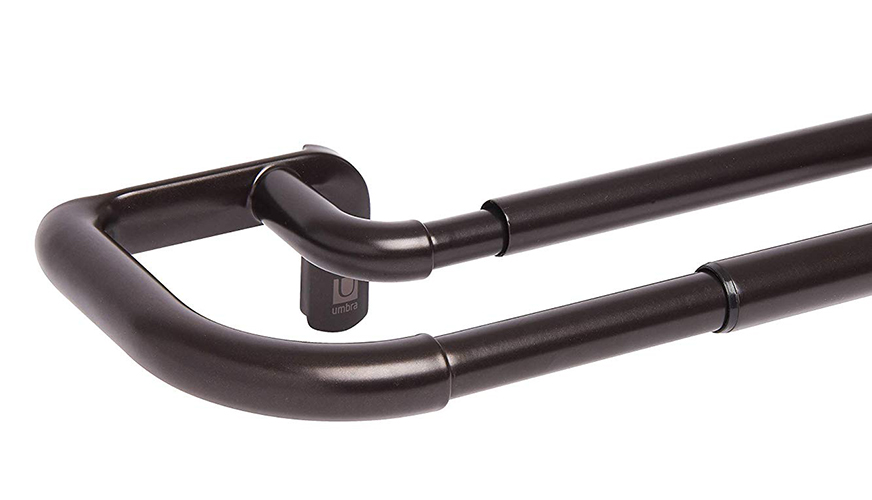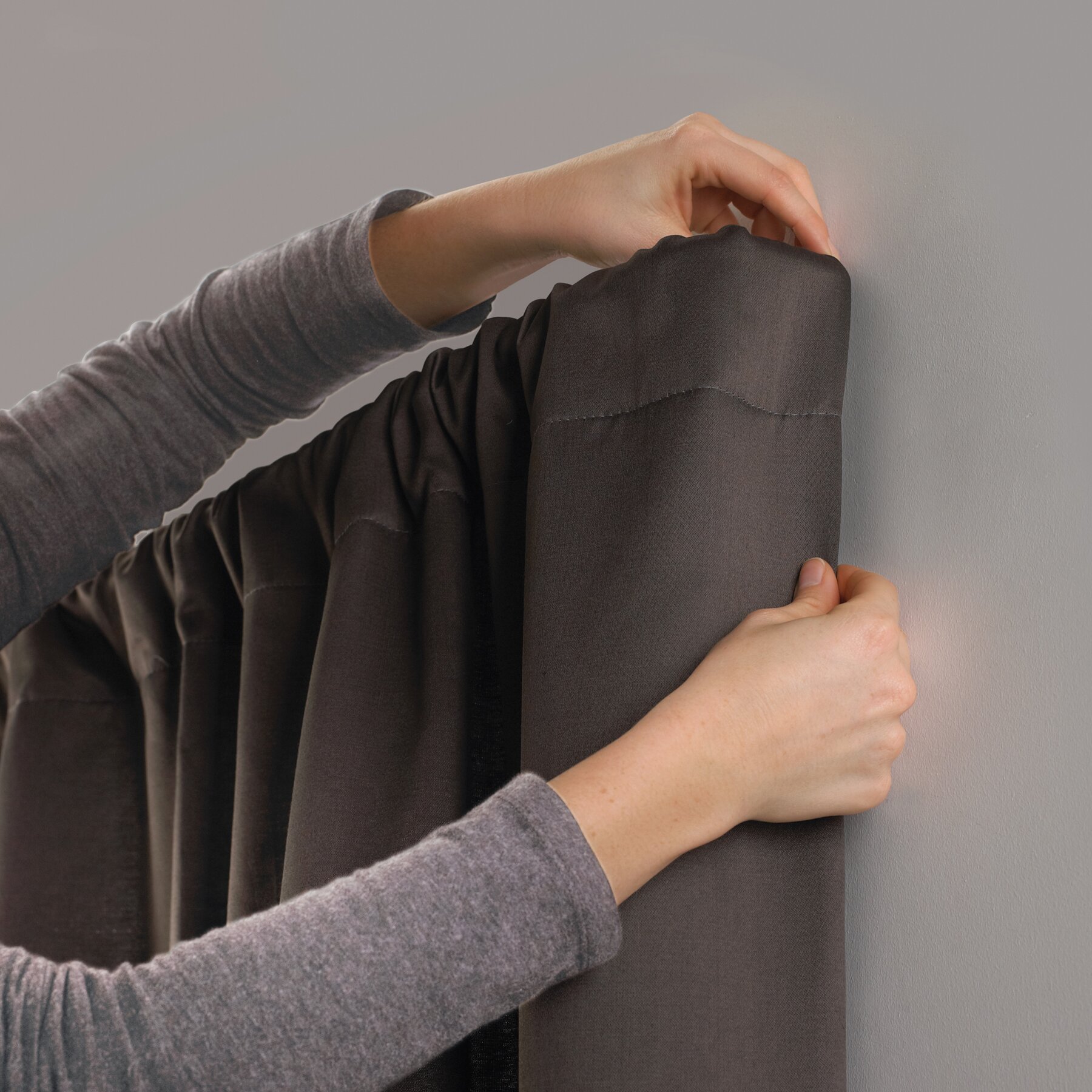


Plastic rods are more likely to bend, and wooden rods even more so.


Most importantly, it’s less prone to sag under the weight of heavy curtains, though telescoping rods might still bow if they’re stretched too long or improperly installed. It’s durable and if it’s treated properly won’t corrode. Metal is the most common material for a reason. You might also find older curtain rods that are made of wood, which can definitely evoke a classic feel. The typical curtain rod will be made of aluminum, stainless steel or some other form of metal, with plastic a less common option. No matter what your curtain rod is made of, non-telescoping models are generally a little more sturdy - though certainly less versatile. Of course, some materials might be stronger than others. (That’s a curtain that hangs by way of a pocket sewn into the fabric at the top.) But you won’t want to get anything that’s too thick either, especially if you’re using curtains with the common casement mounting style. Anything smaller than one inch in diameter might be too flimsy for your needs, especially with heavier grommet-style curtains or those made of heavy, quilt-like material. You’ll also want to get a curtain rod that’s the right thickness. Most rods will either telescope or have a spring-loaded mechanism of some sort that allows you to adjust their length. Don’t worry too much about getting one that’s exactly the right measurement. That means your curtain rod should be about 6 inches to a foot bigger than your window. As a general rule, the edges of your curtain rod should extend 3-6 inches past the window frame on either side. That will mean spending some time at your window with a tape measure. Choose poorly and you’ve got a crucial design element that stands out - and not in a good way.īefore you give any thought to style, make sure you get the size and materials right. Get the finials just right and you’ve got a synchronized look that complements not just the curtain but the room around it. In reality, a well-chosen curtain rod that’s 100 to 120 inches long can be just as much a component of your decor as the curtains themselves. After all, you’d just be looking for a relatively sturdy rod of steel or wood, meant to hold up some heavy sheets of fabric. And if that’s all they were, picking a curtain rod would be easy. In strictly utilitarian terms, 100- to 120-inch curtain rods are there for support.
#Umbra twilight double curtain rod full
We know you’re going to love your purchase but if you’re not completely thrilled for any reason (or even no reason at all), simply contact us within 30 days of receiving your order and we’ll happily resolve the matter or issue a full refund. SATISFACTION GUARANTEED OR YOUR MONEY BACK: Umbra is committed to the highest levels of quality and excellence and stand behind every product we make. SAVE ON ENERGY COSTS, REDUCE NOISE: When combined with a blackout curtain or light blocking curtains Twilight will help insulate your room, blocking winter’s cold drafts, as well as outdoor noise. ROOM DARKENING SOLUTION: By creating a window curtain rod that curves at both ends, curtains sit flush against the wall with Twilight and wrap around the window from end-to-end, blocking out light while insulating the room. FITS MUTLIPLE WINDOW SIZES: Telescoping double rod has a 3/4-inch diameter front rod and 5/8-inch diameter back rod, and is available in 3 sizes to accommodate most windows. EASY TO SET UP: Your Twilight double curtain rod comes with everything you need to get set up quickly and doesn’t require a curtain rod bracket includes steel curtain rod, metal screws, plastic screw anchors, and easy to follow assembly instructions. Note: Product can hold curtains to a maximum of 22 lb when user uses all correct mounting and support hardware.


 0 kommentar(er)
0 kommentar(er)
